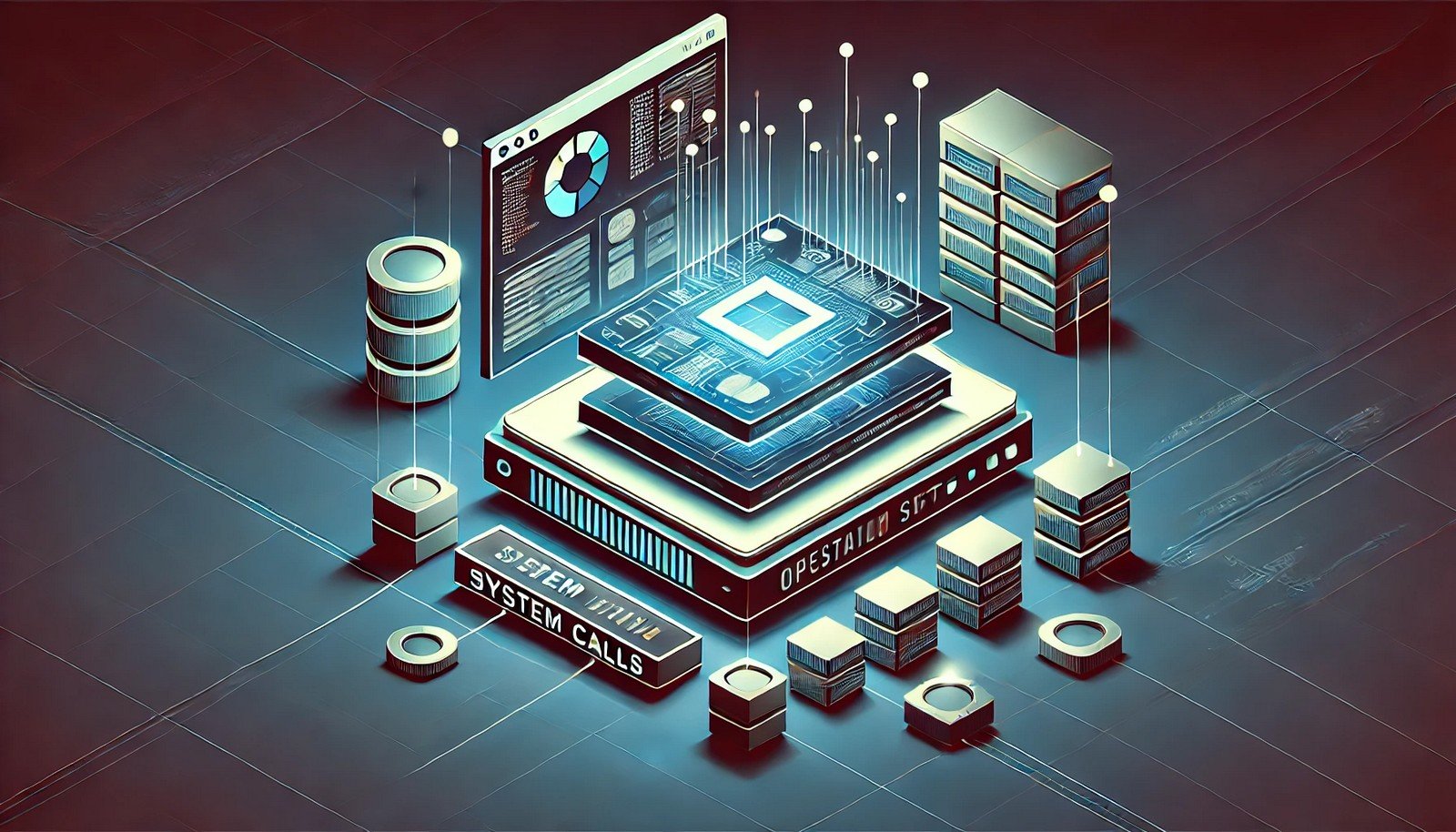System Calls

(Representational Image | Source: Dall-E)
Quick Navigation:
- System Calls Definition
- System Calls Explained Easy
- System Calls Origin
- System Calls Etymology
- System Calls Usage Trends
- System Calls Usage
- System Calls Examples in Context
- System Calls FAQ
- System Calls Related Words
System Calls Definition
System calls are functions provided by the operating system that allow programs to request services, such as file operations, process control, and network communication. They form the interface between user applications and the operating system kernel, enabling programs to interact with hardware without dealing with hardware-level details directly. Examples of system calls include open(), read(), write(), and fork().
System Calls Explained Easy
Imagine you want to ask your parent for a cookie from a jar on a high shelf. Instead of climbing up yourself, you ask for help, and they get it for you. System calls are like this: programs ask the operating system to help them perform tasks they can't do on their own, like accessing files or starting new programs.
System Calls Origin
System calls originated in the early days of operating systems to provide a standard method for programs to interact with computer hardware. The concept dates back to the development of Unix in the 1970s, which introduced many of the system calls still in use today.
System Calls Etymology
The term "system call" combines "system," referring to the operating system, and "call," meaning a request or function invocation.
System Calls Usage Trends
With the growing complexity of modern computing, system calls have evolved to support virtualization, security enhancements, and cloud-native environments. The rise of containerization and microservices has led to new challenges in managing system call security and performance.
System Calls Usage
- Formal/Technical Tagging: Operating System, Kernel Interface, Process Control
- Typical Collocations: "system call interface," "Linux system calls," "file descriptor operations," "inter-process communication using system calls"
System Calls Examples in Context
- The
fork()system call in Unix-like systems creates a new process by duplicating the calling process. read()andwrite()are essential system calls for reading from and writing to files or devices.- Modern web servers rely on system calls for managing multiple connections efficiently.
System Calls FAQ
- What are system calls?
System calls are functions that allow user programs to interact with the operating system. - Why are system calls important?
They provide a controlled way for programs to request services from the operating system. - What is the difference between a system call and a library call?
System calls interact directly with the operating system kernel, while library calls are higher-level functions that may internally use system calls. - Can system calls improve application performance?
Efficient use of system calls can improve performance, but excessive use may slow down a program. - What are some common system calls in Unix/Linux?
Examples includeopen(),read(),write(),fork(), andexec(). - Are system calls the same across all operating systems?
No, they vary depending on the operating system. For example, Windows and Linux have different system call interfaces. - How do system calls ensure security?
System calls enforce permissions and restrictions to prevent unauthorized access to system resources. - What is a system call in networking?
System calls likesocket(),bind(), andsend()are used for network communication. - Can user programs create new system calls?
No, system calls are part of the operating system kernel and cannot be created by user programs. - What is a system call table?
It is a data structure used by the operating system to manage available system calls and their handlers.
System Calls Related Words
- Categories/Topics: Operating Systems, Kernel Programming, Process Management
Did you know? The concept of system calls was crucial to the development of Unix, and many of today’s operating systems are built on similar principles. One of the earliest and still widely used system calls,
fork(), helped make Unix a pioneer in multitasking.
PicDictionary.com is an online dictionary in pictures. If you have questions or suggestions, please reach out to us on WhatsApp or Twitter.Authors | Arjun Vishnu | @ArjunAndVishnu

I am Vishnu. I like AI, Linux, Single Board Computers, and Cloud Computing. I create the web & video content, and I also write for popular websites.
My younger brother, Arjun handles image & video editing. Together, we run a YouTube Channel that's focused on reviewing gadgets and explaining technology.



Comments powered by CComment